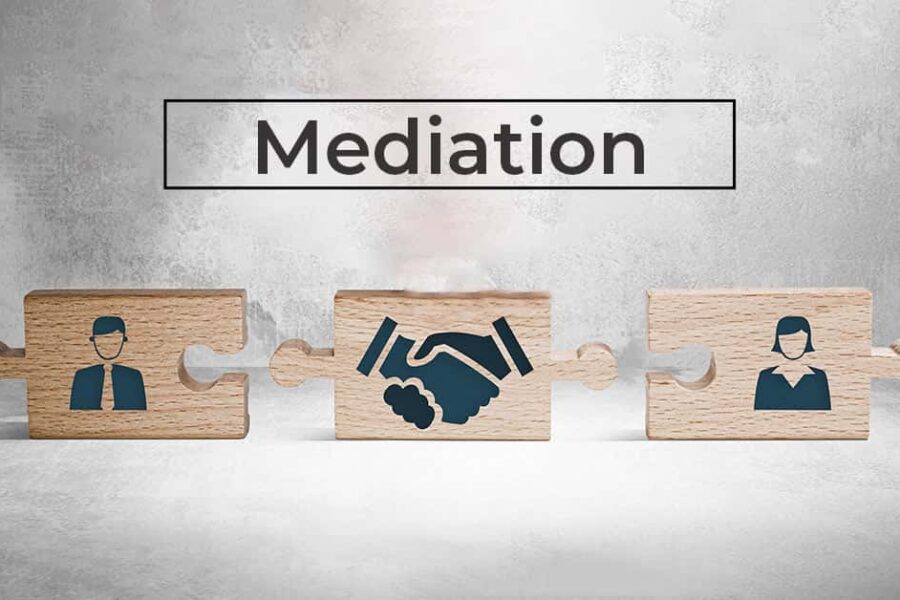At the ‘Law Offices of Kr. Vivek Tanwar Advocate and Associates,’ our expertise extends to Alternative Dispute Resolution (ADR) with a particular focus on mediation. Mediation is a fundamental component of our practice, and we are well-versed in its intricacies.
Introduction
Matrimonial disputes represent a substantial portion of my legal practice, and over the years, We need to appreciate the invaluable role that mediation plays in addressing these emotionally charged and complex conflicts. In this article, we delve into the efficacy of mediation as a powerful tool for resolving matrimonial disputes, offering an alternative that is both legally sound and increasingly preferred by clients seeking a more constructive and less adversarial path to resolution.
Understanding the Complex Landscape of Matrimonial Disputes
Matrimonial disputes encompass a wide spectrum of issues, including divorce, alimony, child custody, property division, and more. These disputes often carry a heavy emotional toll, making litigation a contentious, costly, and protracted affair that does not always lead to optimal outcomes.
The Legal Efficacy of Mediation
Mediation, as a non-adversarial process, introduces a neutral third party—the mediator—who facilitates communication, negotiation, and the development of a mutually agreeable resolution. Within the realm of matrimonial disputes, mediation offers numerous legal advantages:
1. Preservation of Relationships: Mediation fosters open and respectful communication between the parties, thereby preserving relationships. This aspect gains particular significance when children are involved, as it emphasizes the importance of harmonious co-parenting.
2. Cost-Effectiveness: The financial burden of litigation, often marked by escalating legal fees, can be significantly reduced through mediation, as it is typically less expensive.
3. Timely Resolution: Matrimonial litigation is notorious for its extended duration, which can stretch for months or years. Mediation provides an expedited alternative, allowing parties to arrive at agreements within a matter of weeks and facilitating their ability to move forward.
4. Control Over Outcomes: Unlike court rulings, mediation empowers parties to take control of the decisions, crafting agreements tailored to their unique circumstances and needs.
5. Confidentiality: Mediation is a private process, ensuring that personal matters remain shielded from public scrutiny.
6. Reduced Emotional Stress: Litigation often intensifies the emotional distress already present in matrimonial disputes. Mediation, by contrast, is a less adversarial and emotionally taxing process.
The Procedural Phases of Mediation
The mediation process, which mirrors the structured formality of a legal procedure, encompasses the following stages:
1. Introduction: At the outset, the mediator acquaints the parties with the mediation process, outlines ground rules, and elucidates their respective roles.
2. Information Gathering: Each party is provided with an opportunity to articulate their concerns, desires, and objectives.
3. Negotiation: The mediator assumes the role of a facilitator, guiding discussions and aiding the parties in reaching consensual agreements on issues such as child custody, alimony, and property distribution.
4. Agreement: Once accord is reached, a comprehensive written agreement is crafted and subject to review by the parties’ legal counsel.
5. Completion: The final agreement, after approval by the court, attains legal status, becoming binding.
Conclusion
Mediation emerges as a legal instrument of paramount importance in addressing matrimonial disputes, delivering a more constructive, cost-effective, and amicable alternative to conventional litigation. It serves as a platform that empowers parties to actively participate in shaping their futures, concentrating on their specific needs and interests. By fostering communication, mutual understanding, and cooperation, mediation is ideally suited to navigate the intricacies of matrimonial disputes with reduced acrimony and emotional strain. Consequently, it enables individuals to transition to the next chapter of their lives in a more harmonious and legally sound manner.
Written by: Adv.Anjali Bablani (D/3376/2016)

